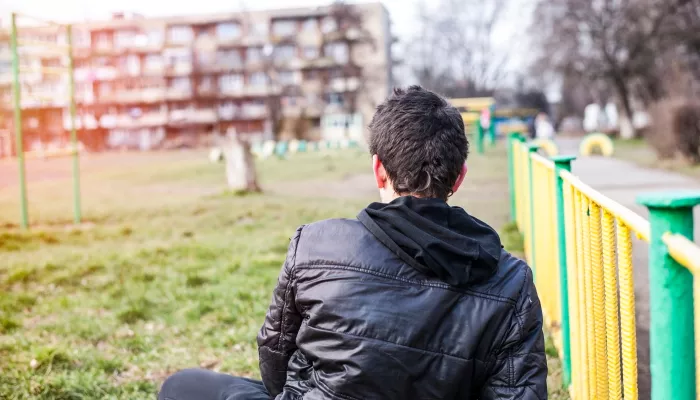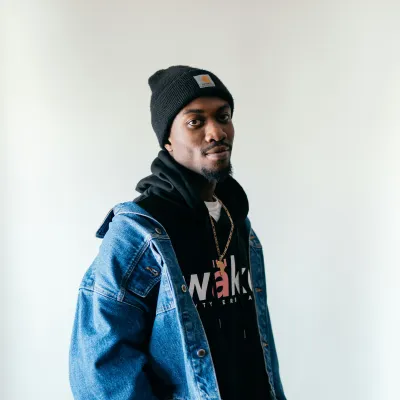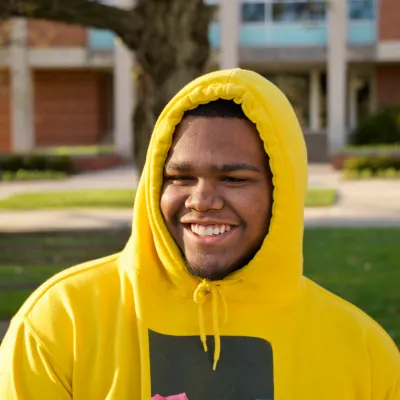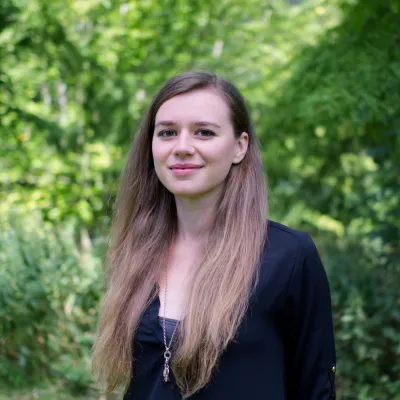Adil* came to the UK from Syria when he was 16. Like many unaccompanied minors, Adil was referred to Centrepoint by the local authority. It was early 2021.
The experience of a young asylum seeker in the UK
The Centrepoint staff team supported Adil with a variety of things such as learning English at college, getting set up with local services like a GP and dentist, learning how to cook and clean for himself, where to shop for clothes and food locally, and referring him to work with our Centrepoint health team. There were lots of new systems, processes, and people for Adil to get used to, which is even more of a challenge when there is a language barrier.
Centrepoint also helped Adil to stay in touch with his solicitor about his asylum application. The Home Office challenged Adil’s age; believing he was over 18 when he came to the UK. This meant that Adil had to go through an age assessment and had to move out to Home Office accommodation for adults while he appealed it. Eventually after about eight months of waiting, Adil’s appeal was successful – he was able to move back to Centrepoint and his asylum claim could begin. Here is Adil's story is his own words.
Life in war torn Syria
"I had to leave Syria because of the war. People were fighting and dying. People didn’t have food. There were no human rights. Everyone was just fighting for survival no matter what it takes and who they hurt or kill.
In Syria, there are so many nationalities. It’s like there are many countries in one country. Everyone fights everyone else. There is so much conflict.
My family said I should leave for my safety. I was very scared. I crossed many countries. The whole journey from Syria to the UK took one month. We tried not to be seen and caught. I had to listen to the smugglers, as I had nobody else to listen to."
Crossing the English Channel to the UK
"The most frightening part of the journey was crossing the Channel from France to the UK.
We were in the middle of the sea and I couldn’t see land. There were lots of mothers and babies in the boat, it was shaking and it was so full. There were 49 people in a nine-metre boat. The water was coming inside and people were taking their clothes to soak up the water and squeeze it out. I had no lifejacket and I thought I might die. The smugglers were very bad people and it was not safe. They said, if we die, it’s our choice, nothing will happen to them.
For so many people, this journey doesn’t feel like a choice. You can choose to die where you are or risk dying trying to get away."
Arriving in Dover
"When I arrived in Dover, they gave us some biscuits and juice. We did a Covid test and many other tests. They took us to a centre and I was very scared. I was crying all the time. I thought, ‘What am I going to do? My life has no meaning.’ I had nothing. I had no control over anything. I didn’t speak English - just yes and no so I didn’t understand what they were saying. They showed us pictures of flags to find out where we came from and numbers to ask how old we were."
Making sense of life in the UK
"For the first few months here, I felt very bad. I felt like I was going a little bit crazy in my mind. The worst part was leaving my family. If you leave your family, nobody can save them.
As time has passed, I am feeling much better. I know my life is better here and that I may not have survived in Syria. The staff at Centrepoint have helped me so much with so many things; even helping me to wake up for college. I think they care about me more than I care about myself. They teach me so much. They help me understand letters and emails and I trust them completely. They help me make sense of it all, encourage me and help me stay positive.
I do not know about my future. I have learnt to have no wishes, because what I wish for is bigger than my power.
I just have to wait and see what happens and whether I can stay here. I know I will never find my family again. They have no phone and I do not know what has happened to them; it has been very hard. My wish is to find my family, but I have no power over that.
I have no passport or citizenship so I can’t work, but I am learning English in college. I just want to learn because everything I experience is teaching me something and makes me stronger for the future.
The advice I would give myself if I could go back to before is don’t worry. God is everywhere and he will protect you. Having God in my life keeps me strong. People believe in all sorts of things and people have different religions. I think it’s important to believe in something because it makes you stronger. It gives your life meaning."
Adil is still waiting
Adil has recently moved to a Centrepoint studio flat with lower support, as he is able to do more and more for himself. Adil is still waiting for the outcome of his asylum application. This uncertainty makes it difficult for him to move forwards.
*names have been changed
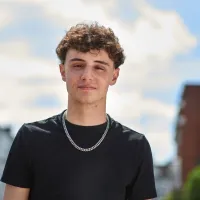
Make a donation
With your donation, we can help more young people like Adil access the support they need to move forward.

